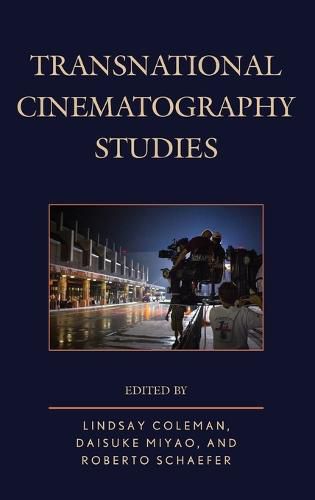Readings Newsletter
Become a Readings Member to make your shopping experience even easier.
Sign in or sign up for free!
You’re not far away from qualifying for FREE standard shipping within Australia
You’ve qualified for FREE standard shipping within Australia
The cart is loading…






Transnational Cinematography Studies introduces new perspectives to the discipline of film and media studies. First, this volume focuses on a crucial yet largely unexplored area in film and media studies: the substantial communication between critical studies of cinema and film production practices. This book integrates theories and practices of cinematographic technology. Secondly, Transnational Cinematography Studies expands the scope of film and media studies into the arena of transnationalism. Cinema is now discussed in terms of globalization of audio-visual cultures, with regard to such issues as Hollywood film studios’ so-called runaway productions and multi-national co-productions; Hollywood remakes of Asian horror films or Hong-Kong martial arts films; and the growing significance of international film festivals. However, this volume proposes that globalization is not in itself new in the history of cinema, and that cinema has always been at the forefront of transnational culture from the beginning of its history.
$9.00 standard shipping within Australia
FREE standard shipping within Australia for orders over $100.00
Express & International shipping calculated at checkout
Transnational Cinematography Studies introduces new perspectives to the discipline of film and media studies. First, this volume focuses on a crucial yet largely unexplored area in film and media studies: the substantial communication between critical studies of cinema and film production practices. This book integrates theories and practices of cinematographic technology. Secondly, Transnational Cinematography Studies expands the scope of film and media studies into the arena of transnationalism. Cinema is now discussed in terms of globalization of audio-visual cultures, with regard to such issues as Hollywood film studios’ so-called runaway productions and multi-national co-productions; Hollywood remakes of Asian horror films or Hong-Kong martial arts films; and the growing significance of international film festivals. However, this volume proposes that globalization is not in itself new in the history of cinema, and that cinema has always been at the forefront of transnational culture from the beginning of its history.